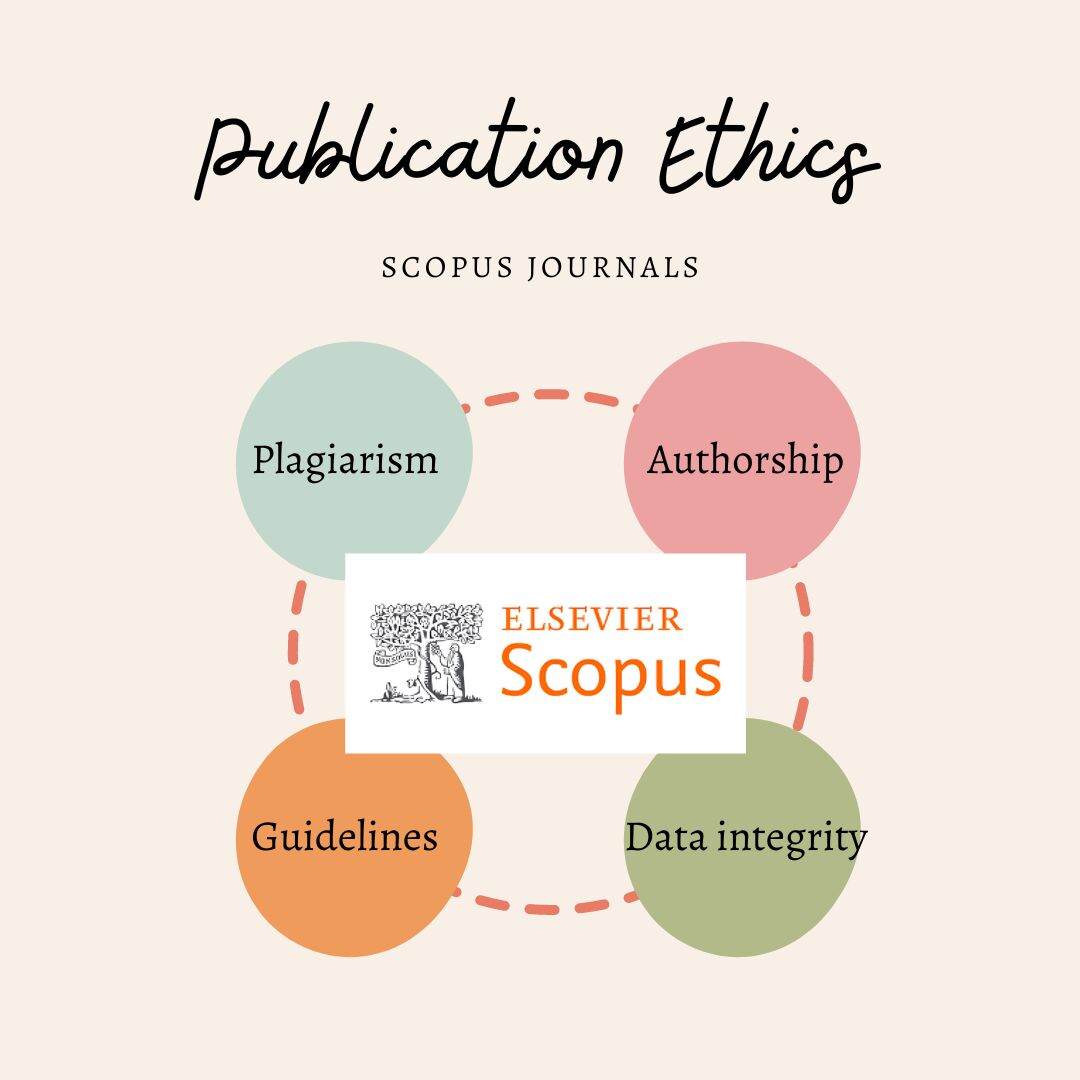Publication Ethics in Scopus journals


This article explores diverse ethical considerations and responsible conduct in publishing research articles in Scopus Q1-Q4 journals. We will delve into main issues such as plagiarism, authorship, conflicts of interest, data integrity, and compliance with publishing guidelines and standards.
Plagiarism, the process of presenting someone else's work or ideas as one's own, is a serious ethical breach in academic publishing. Authors must ensure that their manuscripts are original and properly acknowledge the contributions of others. To avoid plagiarism, ensure citing and referencing any sources utilized in your research appropriately. Additionally, authors should use plagiarism detection tools to assess the originality of their work before submission. By upholding intellectual integrity, researchers contribute to the trustworthiness and credibility of the scientific community.

Determining authorship is a critical aspect of responsible conduct in publishing. All individuals who contributed to the research should be listed as authors, while those who have not should be acknowledged appropriately. It is crucial to establish clear guidelines within research teams regarding authorship criteria, ensuring that all contributors understand their roles and responsibilities. Transparent authorship practices promote fairness, accountability, and recognition of individual contributions.

Conflicts of interest can arise when authors, reviewers, or editors have financial, personal, or professional relationships that may influence their objectivity or integrity in the publication process. It is crucial to disclose any potential conflicts of interest, such as funding sources, affiliations, or competing interests, during manuscript submission. Journals often require authors to provide explicit statements regarding conflicts of interest to maintain transparency and uphold impartiality in the research.

Maintaining data integrity is fundamental to responsible conduct in publishing. Researchers should ensure the accuracy, reliability, and reproducibility of their data. It includes proper data collection, storage, analysis, and interpretation. It is essential to adhere to established research protocols, follow ethical guidelines for human and animal subjects, and maintain comprehensive records of the research process. Transparent data reports and methods aid in the evaluation and replication of research findings.

Adhering to publishing guidelines and standards is vital to ensure the quality and consistency of published research. Authors should familiarize themselves with the specific requirements of the target journal, including formatting, citation style, and submission guidelines. Following these guidelines demonstrates professionalism and respect for the journal's editorial process. Moreover, researchers should strive to uphold broader publishing standards, such as those established by organizations like the Committee on Publication Ethics (COPE), to promote responsible conduct and maintain the integrity of the scientific literature.

Are you a researcher looking for expert assistance in navigating the complex world of academic publishing?

Look no further! SITA offers comprehensive publication support services that can streamline your journey from manuscript formatting to journal selection and submission. Our team of experienced professionals can guide you in selecting the right journal for your research, ensuring a perfect fit for your work. We also provide meticulous manuscript formatting to meet the specific requirements of your target journal, saving you valuable time and effort. Let us simplify the submission process and enhance your chances of successful publication. Contact SITA today and take a confident step toward getting your research published in the right journal.
If you have any questions, inquiries, or would like to learn more about our services, please don't hesitate to reach out to us. Our dedicated team is ready to assist you.